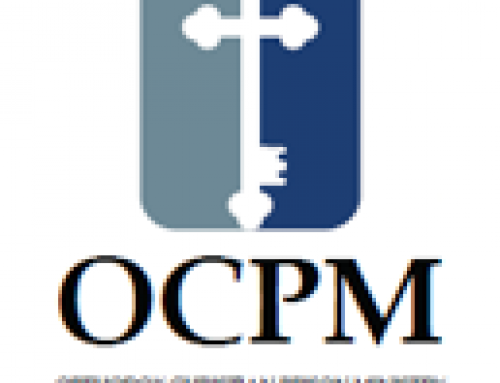This post was originally published on this site
Part I:
Start your meeting by listening to this clip from Father Thomas Hopko’s Speaking the Truth in Love: “A Deeper Level of Thanksgiving”
(Click here to listen to the the full episode on Ancient Faith Radio.)
Part II:
After watching, take 2-3 minutes to write down your initial thoughts about the clip from the podcast.
Part III:
Then, discuss the following questions as a group, or in smaller groups:
- In the podcast clip, Father Thomas reads from the first chapter of St. Paul’s Epistle to the Romans, highlighting the dark and evil lives that ungrateful people have fallen into over the course of human history (Romans 1:21-32). What is gratitude? How does a lack of gratitude lead to a life of darkness and sin?
If this is a difficult question, think of sin as missing the mark: How does a lack of gratitude cause us to miss the mark and how does that lead to dwelling in darkness?
- Why does Father Alexander Shmmeman say that “everyone capable of gratitude is capable of salvation?” What is the connection between salvation and gratitude?
- Father Thomas mentions our life “being gratitude & thanksgiving” and the importance of living eucharistically. Describe someone you know that encapsulates what it means to be thankful. How does that person differ from someone who simply gives thanks?
- The passage from St. Paul’s Epistle to the Ephesians that Father Thomas reads in the podcast (Ephesians 5:3-20) mentions a variety of things that we should refrain from doing in order to cultivate a life of gratitude towards God. Take another look at the things mentioned in this passage. How do they compare to the things that pull us away from a life of gratitude in today’s social climate and life on a college campus? Which of these things do you find to be your own greatest roadblock to cultivating a life of gratitude?
Part IV:
The Orthodox Church responds to the aspects of life that pull us away from a life of thanksgiving by offering us a rhythm of Divine Services that help us practice gratitude. However, to really achieve a life of gratitude we can’t solely rely on the broader rhythms of the Church. To become grateful ourselves, we must strive to practice gratitude on a personal level by engaging in each day of our lives with a positive, rather than negative, outlook.
In a planner, journal, or your phone, come up with a rythmic practice that will allow you to cultivate thanksgiving in your own life and to transition from a person who gives thanks to a person who is thankful.
Here are some suggestions:
- Every morning, venerate an icon of Christ and give thanks for 3 unique and specific things in your life
- Every evening, write down three things that you are thankful for from the day (after a month, it may be inspiring to look back on all the things you wrote each day of that month)
- Set 3 alarms on your phone for particular times of the day; when those alarms go off, stop whatever you are doing for 10 seconds, and give thanks to God for something specific in your life
Part V:
Before departing, chant or read Psalm 135 (known as the second Polyeleos [the hymn of Great Mercy/Oil] from Festal Orthros).
For a reference to the traditional melody for chanting the psalm, listen to this recording.
***Notes on chanting Psalm 135:
- The phrase “Alleluia” (which means, “God praised,”) is inserted twice into each verse as a refrain, though it is not part of the text of the original psalm offered below. If you are chanting the hymn, make sure you know where to add the “Alleluia”s before doing so.
- While most people know how to chant Psalm 135 in one mode, the recording above follows the tradition of changing modes every several verses; feel free to stick to chanting the melody in the mode you know best.
Psalm 135
O give thanks unto the Lord, for He is good; for His mercy endureth for ever.
O give thanks unto the God of gods; for His mercy endureth for ever.
O give thanks unto the Lord of lords; for His mercy endureth for ever.
To Him Who alone hath wrought great wonders; for His mercy endureth for ever.
To Him that made the heavens with understanding; for His mercy endureth for ever.
To Him that established the earth upon the waters; for His mercy endureth for ever.
To Him Who alone hath made great lights; for His mercy endureth for ever.
The sun for dominion of the day; for His mercy endureth for ever.
The moon and the stars for dominion of the night; for His mercy endureth for ever.
To Him that smote Egypt with their firstborn; for His mercy endureth for ever.
And led forth Israel out of the midst of them; for His mercy endureth for ever.
With a strong hand and a lofty arm; for His mercy endureth for ever.
To Him that divided the Red Sea into parts; for His mercy endureth for ever.
And led Israel through the midst thereof; for His mercy endureth for ever.
And overthrew Pharaoh and his host in the Red Sea; for His mercy endureth for ever.
To Him that led His people through the wilderness; for His mercy endureth for ever.
To Him that smote great kings; for His mercy endureth for ever.
And slew mighty kings; for His mercy endureth for ever.
Seon, king of the Amorites; for His mercy endureth for ever.
And Og, king of the land of Basan; for His mercy endureth for ever.
And gave their land for an inheritance; for His mercy endureth for ever.
An inheritance for Israel His servant; for His mercy endureth for ever.
For in our humiliation the Lord remembered us; for His mercy endureth for ever.
And redeemed us from our enemies; for His mercy endureth for ever.
He that giveth food to all flesh; for His mercy endureth for ever.
O give thanks unto the God of heaven; for His mercy endureth for ever.




